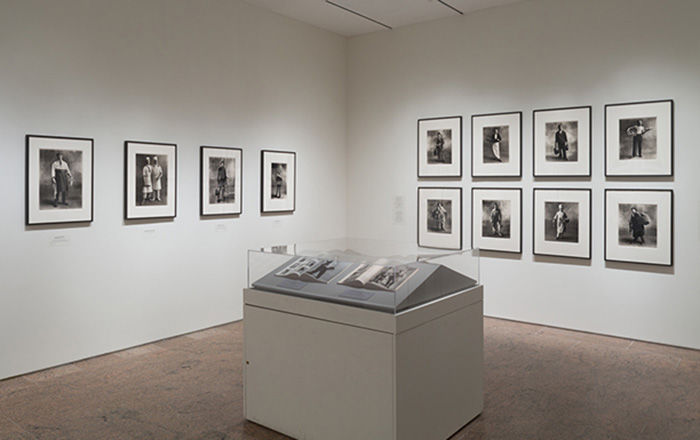Negro Church, South Carolina
Walker Evans American
Not on view
Walker Evans received formal notice of his appointment to the Resettlement Administration in the summer of 1935. Although he was avowedly apolitical, he accepted the position of information specialist knowing that it would provide him with a regular income and allow him to do what he most wanted to do--make photographs. For two years he traveled, mostly in the South, producing the extensive body of work that secured his reputation as America's preeminent photographer: pictures of roadside architecture, small churches, Main Streets, junkyards, and the famous portraits of tenant farmers in Hale County, Alabama, that were later included in the book "Let Us Now Praise Famous Men" (1941), made in collaboration with his friend James Agee.
This photograph of a country church is mounted on a sheet of heavy paper used by the artist in his maquette for the 1938 Museum of Modern Art catalogue "American Photographs." It was also the print copied for the book's reproduction. If the catalogue was bound in bible cloth, which the artist insisted upon, then this print is as rare as a piece of the true cross.
Rural churches also inspired the writer in Evans. More than twenty years later, in an article entitled "Primitive Churches," he wrote: "Out-of-the-way churches . . . comprise the most unnoticeable ecclesiastical architecture in the U.S. But they are unnoticeable with a vengeance: even the unbeliever must feel their force. These buildings are primitive, if the term may be used without its shade of condescension . . . country churches of fading, weatherworn wood, with touches of old color on the trim. In these, the rewarding features are belfry and tower, sporting all variety of shingle play and dancing line. Amplified by understatement, consecration here speaks tenfold over such labored glorifications as Saint Patrick's Fifth Avenue or the Cathedral of St. John the Divine."
Due to rights restrictions, this image cannot be enlarged, viewed at full screen, or downloaded.
This artwork is meant to be viewed from right to left. Scroll left to view more.



